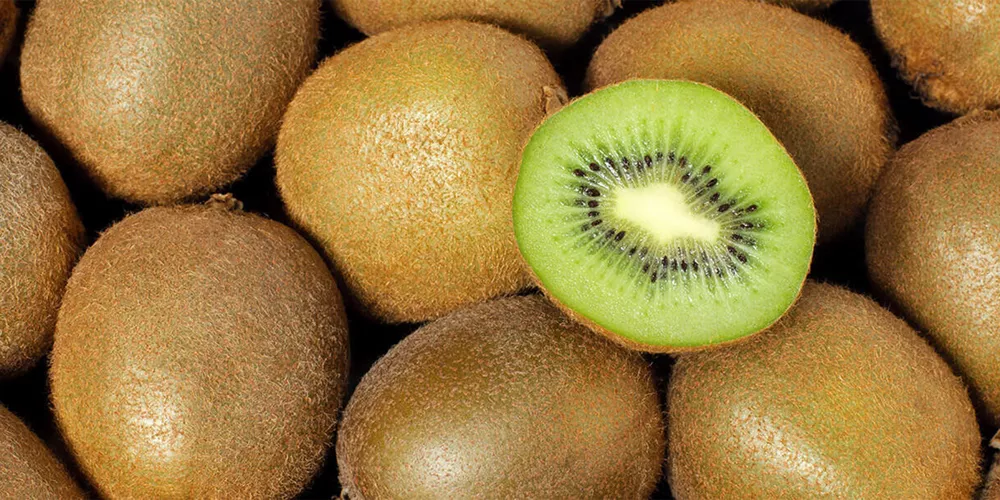High blood pressure, also known as hypertension, is a prevalent health condition that increases the risk of serious diseases such as heart attack, stroke, and kidney failure. Managing high blood pressure involves a combination of lifestyle changes, including diet, exercise, and medication. A key component of dietary management is incorporating fruits that have been shown to help control blood pressure. This article explores five fruits that are particularly beneficial for maintaining healthy blood pressure levels.
5 Fruits Best to Control High Blood Pressure
1. Bananas
Bananas are well-known for their high potassium content, a mineral that plays a crucial role in managing blood pressure.
Potassium helps balance the negative effects of sodium in the body, which is a significant contributor to high blood pressure. By promoting the excretion of sodium through urine and relaxing blood vessel walls, potassium effectively helps lower blood pressure.
see also: Which Food Is Good for BP Patients?
Nutritional Benefits
Potassium: A medium-sized banana provides about 400-450 mg of potassium, making it an excellent choice for boosting your daily intake.
Fiber: Bananas are also rich in dietary fiber, which can improve heart health by reducing cholesterol levels.
Vitamins: They are a good source of vitamin C and vitamin B6, both of which support overall cardiovascular health.
How to Incorporate Bananas into Your Diet
Breakfast: Add sliced bananas to your cereal, oatmeal, or yogurt.
Snacks: Enjoy a banana on its own or spread some peanut butter on it for a protein-packed snack.
Smoothies: Blend bananas with other fruits and vegetables for a nutritious smoothie.
2. Berries
Berries, including strawberries, blueberries, raspberries, and blackberries, are packed with antioxidants, particularly flavonoids, which have been shown to help reduce blood pressure.
Nutritional Benefits
Anthocyanins: These are powerful antioxidants found in berries that help dilate blood vessels and reduce inflammation.
Fiber: Berries are high in fiber, which can help lower cholesterol and improve overall heart health.
Vitamins: They are rich in vitamins C and K, and folate, which contribute to cardiovascular health.
How to Incorporate Berries into Your Diet
Breakfast: Add a handful of berries to your morning cereal or yogurt.
Snacks: Eat fresh berries as a snack or mix them into a fruit salad.
Desserts: Use berries to make healthy desserts like berry parfaits or smoothies.
3. Citrus Fruits
Citrus fruits such as oranges, grapefruits, lemons, and limes are excellent for blood pressure management due to their high vitamin C content and other beneficial compounds.
Nutritional Benefits
Vitamin C: This antioxidant helps protect blood vessels from damage and can improve the elasticity of arteries.
Flavonoids: Compounds like hesperidin and naringin found in citrus fruits help lower blood pressure and improve blood flow.
Potassium: Citrus fruits also contain potassium, which aids in balancing sodium levels in the body.
How to Incorporate Citrus Fruits into Your Diet
Juices: Drink freshly squeezed orange or grapefruit juice (without added sugar).
Salads: Add segments of oranges or grapefruits to salads for a refreshing twist.
Snacks: Enjoy a citrus fruit on its own as a quick and healthy snack.
4. Kiwis
Kiwis are small but mighty fruits that are particularly effective in controlling blood pressure. They are rich in several nutrients that support cardiovascular health.
Nutritional Benefits
Potassium: Like bananas, kiwis are a good source of potassium, which helps manage sodium levels.
Vitamin C: Kiwis are exceptionally high in vitamin C, an antioxidant that supports heart health.
Fiber: The fiber content in kiwis helps lower cholesterol levels and promotes overall cardiovascular health.
How to Incorporate Kiwis into Your Diet
Breakfast: Add sliced kiwis to your cereal, oatmeal, or yogurt.
Snacks: Eat kiwis on their own or mix them into a fruit salad.
Smoothies: Blend kiwis with other fruits and vegetables for a nutrient-rich smoothie.
5. Watermelon
Watermelon is not only hydrating but also beneficial for blood pressure management due to its high water content and the presence of specific amino acids.
Nutritional Benefits
L-citrulline: This amino acid found in watermelon helps produce nitric oxide, which relaxes blood vessels and improves blood flow.
Potassium: Watermelon contains a good amount of potassium, aiding in the regulation of sodium levels.
Vitamins: It is a good source of vitamins A, B6, and C, all of which support heart health.
How to Incorporate Watermelon into Your Diet
Snacks: Enjoy fresh watermelon slices as a hydrating snack.
Salads: Add watermelon chunks to salads for a refreshing touch.
Smoothies: Blend watermelon with other fruits for a hydrating and nutrient-rich smoothie.
Conclusion
Incorporating these five fruits into your diet can significantly contribute to managing high blood pressure. Each fruit offers unique benefits through its rich nutrient profile, including potassium, iber, antioxidants, and specific vitamins that support heart health. By making these fruits a regular part of your diet, you can take a natural and delicious approach to maintaining healthy blood pressure levels. Remember, while these fruits can aid in controlling blood pressure, they should be part of a balanced diet and healthy lifestyle, including regular exercise and proper medication as prescribed by your healthcare provider.


